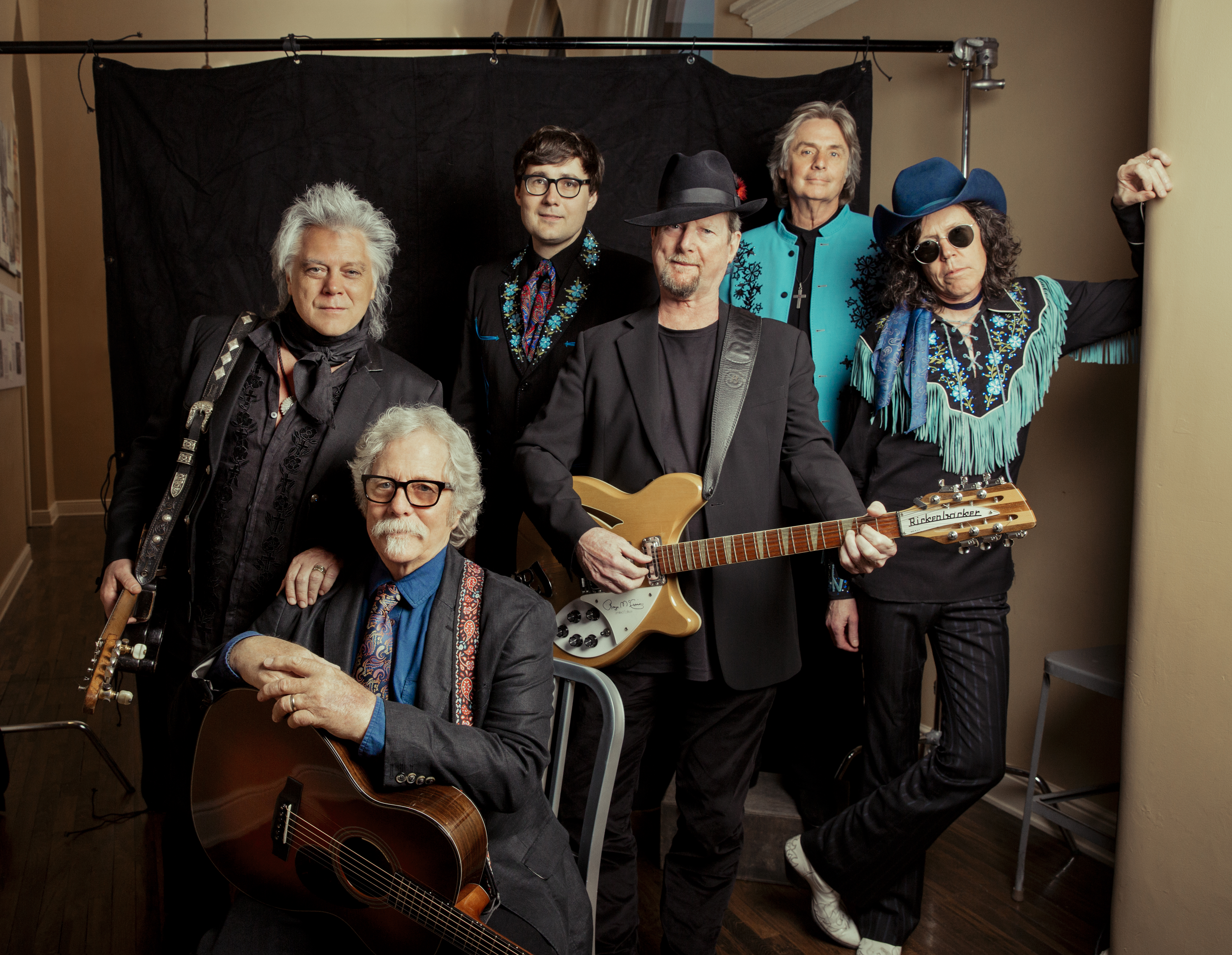Relix 44: The Byrds’ ‘Sweetheart of the Rodeo’

photo by Alysse Gafkjen
Welcome to the Relix 44. To commemorate the past 44 years of our existence, we’ve created a list of people, places and things that inspire us today, appearing in our September 2018 issue and rolling out on Relix.com throughout this fall. See all the articles posted so far here.
A Half-Century of Sweetheart of the Rodeo: A Mini-Byrds Reunion
The Byrds’ Sweetheart of the Rodeo, one of the Rock and Roll Hall of Famers’ most beloved recordings, almost didn’t happen—the original intent of group leader Roger McGuinn had been to embark on a much more ambitious project. “It was going to go from early music through Baroque and into Appalachian,” remembers the singer/guitarist. “Then it would go into how Celtic music came over to America and became distilled in the mountains, became country music, and how R&B started and then rock-and-roll. It would then go out through the synthesizer thing and space music. It was just a wild idea and I couldn’t get anybody to go along with it.”
When that concept imploded, an even more radical idea for the group’s sixth studio release popped up—how about a country album? Although the idea of fusing country and rock wasn’t completely alien (think The Beatles’ “Act Naturally” and “Honey Don’t”), no major band had devoted an entire album to exploring the juncture. What emerged, in the summer of 1968, was an album that initially sputtered commercially—it was too far ahead of its time—but is considered so influential today that it kick-started an entire genre.
Now, 50 years later, McGuinn and fellow founding Byrd Chris Hillman, joined by Marty Stuart
and His Fabulous Superlatives, will embark on a multicity U.S. tour performing, for the first time, the entire Sweetheart of the Rodeo album from start to finish. The shows also mark the first large-scale collaboration between McGuinn and Hillman in years.
“Sweetheart of the Rodeo opened a vast floodgate for West Coast country-rock,” says multi-instrumentalist/singer Hillman. “It was Sweetheart that led to the Eagles, Poco and a number of other things. The legacy of Sweetheart of the Rodeo probably surpassed a lot of the other Byrds projects.”
The album arose out of a somewhat chaotic situation. By 1968, three founding members of the Byrds—Gene Clark, Michael Clarke and David Crosby—had vacated the band, leaving only McGuinn and Hillman. They added drummer Kevin Kelley, Hillman’s cousin, but still felt they needed another voice. Enter Gram Parsons, a young multi-instrumentalist, singer and songwriter who’d made some moderate waves with the International Submarine Band. Parsons was originally brought in simply to play piano (which he did on the album, as well as guitar), but his enthusiasm for country music fired up McGuinn and Hillman, who were also fans.
“We were doing country as far back as ‘Satisfied Mind’ on the [1965] Turn! Turn! Turn! album,” says McGuinn. “And some of the stuff Chris had come up with—‘Old John Robertson,’ ‘Girl With No Name,’ ‘Time Between’—was very country-ish.”
The now-four-piece Byrds set off for Nashville and began recording the album with producer Gary Usher and some top local session musicians, before finishing the LP in Los Angeles. Future Byrds guitarist Clarence White, multi-stringman John Hartford and other aces were among those who helped flesh out the tracks, which included two new Dylan covers, “You Ain’t Goin’ Nowhere” (the first single) and “Nothing Was Delivered,” as well as tunes penned by Merle Haggard, Woody Guthrie, the Louvin Brothers and others. Parsons contributed two of his own compositions as well as one written with Bob Buchanan and all three principal members shared lead vocals.
Sweetheart only peaked at No. 77 in Billboard after its release—The Byrds’ lowest performance to that time—due largely to radio’s inability to slot it into a category. “It was so out of left field that it wasn’t a big seller,” says Hillman. “But it left an incredible legacy.”
“Country people didn’t like it and rock people didn’t like it. It just fell through the cracks,” McGuinn agrees. “And then gradually, after 40 years, people kind of caught on to it and said, ‘Hey, this wasn’t bad at all.’”
Now, the Sweetheart shows are selling out. “I’m surprised, really,” says McGuinn. “I thought we’d just do a couple and be done with it. But people are asking for more.”
This article originally appears in the September 2018 issue of Relix. For more features, interviews, album reviews and more, subscribe here.




















